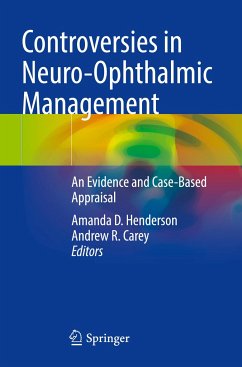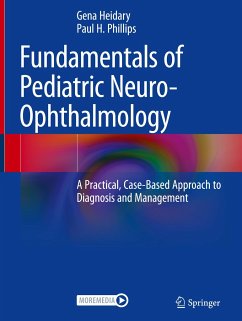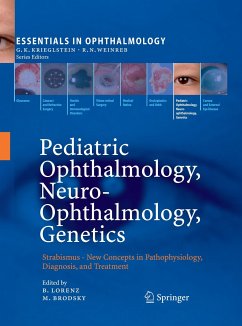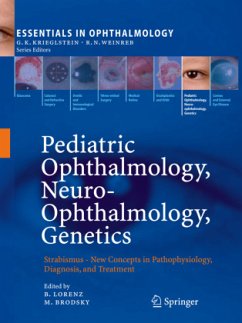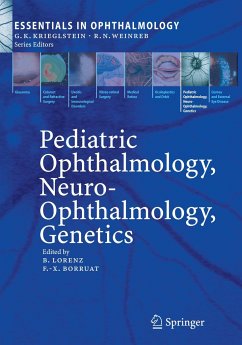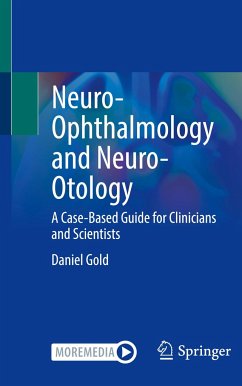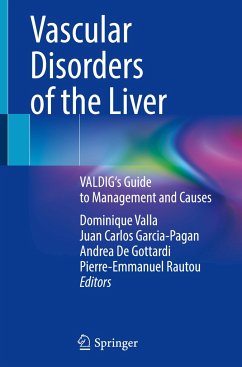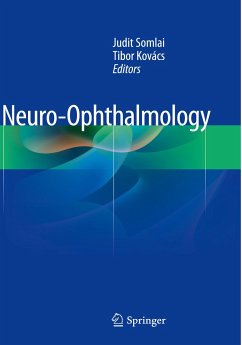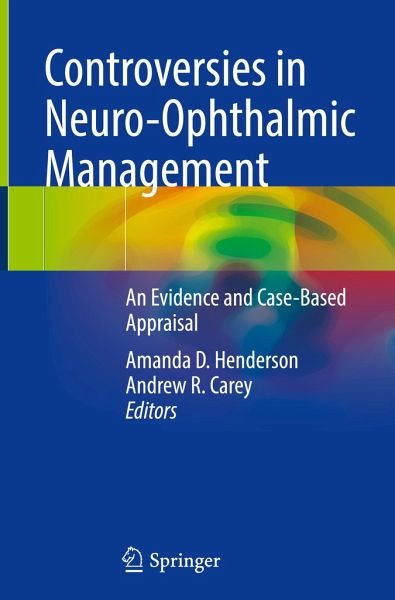
Controversies in Neuro-Ophthalmic Management
An Evidence and Case-Based Appraisal
Herausgegeben: Henderson, Amanda D.; Carey, Andrew R.

PAYBACK Punkte
56 °P sammeln!
This book functions as a resource for providers who treat patients with neuro-ophthalmic conditions. Using an evidence-based approach to controversial management decisions, the material is presented in a digestible, case-based format.Divided into six sections, the book begins with an introduction to its framework, format, and purpose. Following this, sections two, three, and four discuss various optic neuropathies, ocular motility disorders, and transient visual symptoms. The concluding sections then address neuro-ophthalmic manifestations of pain, including migraine and post-concussive syndro...
This book functions as a resource for providers who treat patients with neuro-ophthalmic conditions. Using an evidence-based approach to controversial management decisions, the material is presented in a digestible, case-based format.
Divided into six sections, the book begins with an introduction to its framework, format, and purpose. Following this, sections two, three, and four discuss various optic neuropathies, ocular motility disorders, and transient visual symptoms. The concluding sections then address neuro-ophthalmic manifestations of pain, including migraine and post-concussive syndrome, and systemic diseases, such as giant cell arteritis. Each chapter focuses on cases that are historically complex, or which have undergone a recent shift in traditional management due to new scientific discoveries or newly available therapies.
Controversies in Neuro-Ophthalmic Management presents essential, thorough information on management options and the data for their use to provide the best care for patients.
Divided into six sections, the book begins with an introduction to its framework, format, and purpose. Following this, sections two, three, and four discuss various optic neuropathies, ocular motility disorders, and transient visual symptoms. The concluding sections then address neuro-ophthalmic manifestations of pain, including migraine and post-concussive syndrome, and systemic diseases, such as giant cell arteritis. Each chapter focuses on cases that are historically complex, or which have undergone a recent shift in traditional management due to new scientific discoveries or newly available therapies.
Controversies in Neuro-Ophthalmic Management presents essential, thorough information on management options and the data for their use to provide the best care for patients.



